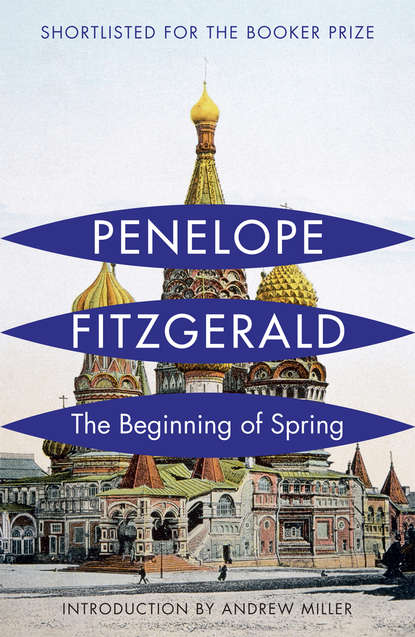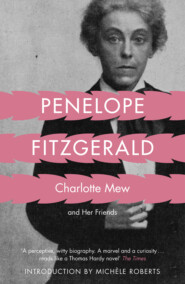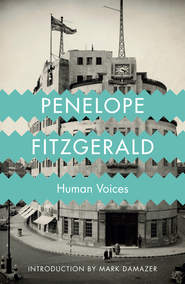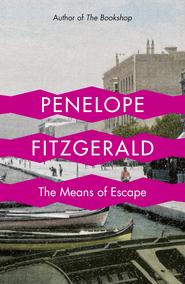По всем вопросам обращайтесь на: info@litportal.ru
(©) 2003-2024.
✖
The Beginning of Spring
Настройки чтения
Размер шрифта
Высота строк
Поля
‘Ah, but I’m fifty-two.’
Selwyn had a reserve of good sense, which appeared when he was at work, and unexpectedly at other times when it might almost have been despaired of. He said, ‘I shan’t take much longer. I’m checking the wage-bill against what the pay clerks are actually handing out. You said you wanted that done more often.’
‘I do want it done more often.’
‘When we’ve finished, why don’t you dine with me, Frank? I don’t like to think of you sitting and staring, it may be, at an empty chair. At my place, and very simply, not in the heartless surroundings of a restaurant.’
‘Thank you, but I won’t do that. I’ll be in tomorrow, though, at the usual time, about eight.’
He put the mouthpiece back on its solid brass hook and began to patrol the house, silent except for the distant rising and falling of voices from the kitchen which, in spite of what sounded like a burst of sobs, had the familiar sound of a successful party. Ramshackle, by Frank’s standards, and roomy, the house consisted of a stone storey and on top of that a wooden one. The vast stove, glazed with white tiles from the Presnya, kept the whole ground floor warm. Outside, towards the bend in the Moscow river, a curious streak of bright lemon-yellow ran across the slate-coloured sky.
Someone was at the front door, and Toma brought in Selwyn Crane. Although Frank saw him almost every day at the Press, he often forgot, until he saw him in a different setting, how unusual, for an English business man, he looked. He was tall and thin – so, for that matter, was Frank, but Selwyn, ascetic, kindly smiling, earnestly questing, not quite sane-looking, seemed to have let himself waste away, from other-worldliness, almost to transparency. With a kind of black frock-coat he wore a pair of English tweed trousers, made up by a Moscow tailor who had cut them rather too short, and a high-necked Russian peasant’s blouse, a tribute to the memory of Lev Nikolaevich Tolstoy. In the warm room, with no ladies present, he threw off the frock-coat and let the coarse material of the blouse sink down in folds around his lean ribs.
‘My dear fellow, here I am. After such news, I couldn’t leave you by yourself.’
‘That’s what I would have preferred, though,’ said Frank. ‘You won’t mind if I speak out. I’d rather have been by myself.’
‘I came on the twenty-four tram,’ said Selwyn. ‘I was fortunate enough to catch one almost at once. Rest assured that I shan’t stay long. I was at my desk when a thought came to me which I knew immediately might be of comfort. I got up immediately and went out to the tram stop. The telephone, Frank, isn’t the right way to convey such things.’
Frank, sitting opposite, put his head in his hands. He felt he could bear anything rather than determined unselfishness. Selwyn, however, seemed to be encouraged.
‘That’s the attitude of a penitent, Frank. No need for that. We are all of us sinners. The thought that came to me didn’t concern guilt, but loss, supposing we think of loss as a form of poverty. Now poverty, or what the world calls poverty, isn’t a matter for regret, but for rejoicing.’
‘No, Selwyn, it’s not,’ said Frank.
‘Lev Nikolaevich tried to give away all his possessions.’
‘That was to make the peasants richer, not to make himself poorer.’ Tolstoy’s Moscow estate was only a mile or so away from Lipka Street. In his will it had been bequeathed to the peasants, who, ever since, had been cutting down the trees to make ready money. They worked even at night, felling the trees by the light of paraffin flares.
Selwyn leant forward, his large hazel eyes intensely focused, alight with tender curiosity and goodwill.
‘Frank, when summer comes, let us go on the tramp together. I know you well, but in the clear air, in the plains and forests, I should surely come to know you better. You have courage, Frank, but I think you have no imagination.’
‘Selwyn, I don’t want my soul read this evening. To be honest, I don’t feel up to it.’
In the hall Toma appeared again to help Selwyn into his sleeveless overcoat of rank sheepskin. Frank repeated that he’d be at the Press at his usual time. As soon as the outer door was shut Toma began to lament that Selwyn Osipych hadn’t taken any tea, or even a glass of seltzer water.
‘He only called in for a moment.’
‘He’s a good man, sir, always on his way from one place to another, searching out want and despair.’
‘Well he didn’t find either of them here,’ said Frank.
‘Perhaps he brought you some news, sir, of your wife.’
‘He might have done if he worked at the railway station, but he doesn’t. She took the Berlin train and that’s all there is to it.’
‘God is not without mercy,’ said Toma vaguely.
‘Toma, when you first came here three years ago, the year Annushka was born, you told me you were an unbeliever.’
Toma’s face relaxed into the creases of leathery goodwill which were a preparation for hours of aimless discussion.
‘Not an unbeliever, sir, a free-thinker. Perhaps you’ve never thought about the difference. As a free-thinker I can believe what I like, when I like. I can commit you, in your sad situation, to the protection of God this evening, even though tomorrow morning I shan’t believe he exists. As an unbeliever I should be obliged not to believe, and that’s an unwarrantable restriction on my thoughts.’
Presently it was discovered that Selwyn’s brief case, really a music case, crammed with papers, and stiffened by the rain of many seasons at many tram-stops, had been left behind on the bench below the coat rack, where the felt boots stood in rows. This had happened a number of times before, and the familiarity of it was a kind of consolation.
‘I’ll take it in with me tomorrow morning,’ said Frank. ‘Don’t let me forget.’
2 (#ulink_12c0a92d-8c0c-55b6-a7e6-124a84163b85)
Up till a few years ago the first sound in the morning in Moscow had been the cows coming out of the side-streets, where they were kept in stalls and backyards, and making their own way among the horse-trams to their meeting-point at the edge of the Khamovniki, where they were taken by the municipal cowman to their pasture, or, in winter, through the darkness, to the suburban stores of hay. Since the tram-lines were electrified, the cows had disappeared. The trams themselves, from five o’clock in the morning onwards, were the first sound, except for the church bells. In February, both were inaudible behind the inner and outer windows, tightly sealed since last October, rendering the house warm and deaf.
Frank got up ready to do what he might have done the evening before, but still hoped wouldn’t be necessary, to send off telegrams. Then, at some point, he had better go to the English chaplaincy, where he could see Cecil Graham, the chaplain, and count on his saying, out of embarrassment, very little. But it would also mean an explanation to Mrs Graham, who in fact, did both the seeing and the saying. Perhaps he might wait a day or so before going to the chaplaincy.
At a quarter to seven the telephone rang, jangling the two copper bells fixed above a small writing desk. It was the stationmaster from the Alexandervokzal. Frank knew him pretty well.
‘Frank Albertovich, there has been an error. You must come to collect at once, or send a responsible and reliable person.’
‘Collect what?’
The stationmaster explained that the three children were deposited at his station, having come back from Mozhaisk, where they had joined the midnight train from Berlin.
‘They have a clothes-basket with them.’
‘But are they alone?’
‘Yes, they’re alone. My wife, however, is looking after them in the refreshment room.’
Frank had his coat on already. He walked some way down Lipka Street to find a sledge with a driver who was starting work, and not returning from the night’s work drunk, half-drunk, stale drunk, or podvipevchye – with just a dear little touch of drunkenness. He also wanted a patient-looking horse. On the corner he stopped a driver with a small piece of resigned, mottled face showing in the lamplight above his turned-up collar.
‘The Alexander station.’
‘The Brest station,’ said the driver, who evidently refused to give up the old name. On the whole, this was reassuring.
‘When we’re there, you’ll have to wait, but I’m not sure for how long.’
‘Will there be luggage?’
‘Three children and a clothes-basket. I don’t know how much more.’
The horse moved gently through the snow and grit up the Novinskaya and then turned without any guidance down the Presnya. It was accustomed to this route because the hill was steep and so a higher fare could be charged both down and up, but it was not the quickest way to the station.
‘Turn round, brother,’ said Frank, ‘go the other way.’
The driver showed no surprise, but made the turn in the middle of the street, scraping the frozen snow into grey ridges. The horse, disconcerted, braced itself, crossing its legs and moving with the awkwardness of a creature disturbed in its habits. Its guts rumbled and it coughed repeatedly, sounding not like a horse, but a piece of faulty machinery. As they settled into a trot down the Tverskaya, Frank asked the driver whether he had any children himself. His wife and family, the driver said, weren’t with him, but had been left behind in Rovyk, his village, while he did the earning. Yes, but how many children? Two, but that they had both died in Rovyk when the cholera came. His wife hadn’t had the money, or the wits, to buy a certificate to say that they’d died of something else, so they’d had to be buried in the pest cemetery, and no one knew where that was. At this point he laughed inappropriately.
‘Why don’t you send for your wife to keep you company?’











